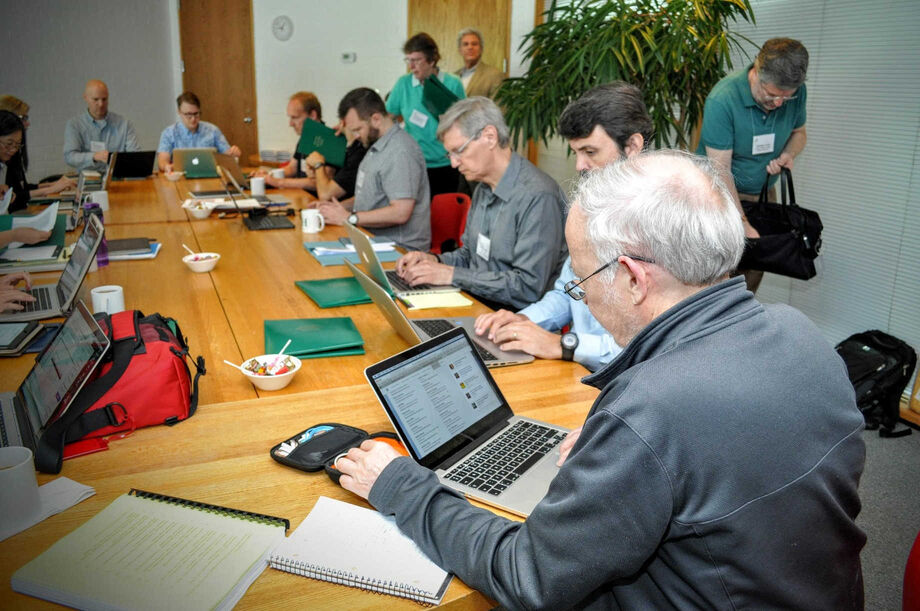With funding from the NEH, the National Humanities Center (NHC) has hosted two Dialogues on the Experience of War programs, Exploring the Experience of War and Troops to Teachers: Helping Communities and Classrooms Understand the Military Experience. Both programs helped veterans reflect on the experience of war and the return home and provided opportunities for their communities to reflect as well. Altogether, NHC has reached veterans in Georgia, Virginia, and throughout North Carolina through this program.
Read More
Using a train-the-trainer model, in 2016 the Exploring the Experience of War served chaplains and others who provide non-medical support to veterans by offering them facilitation training. These discussion leaders explored works spanning form and genre, from William Shakespeare’s Henry V, to Vera Brittain’s Testament of Youth, to Saving Private Ryan and American Sniper. They were able to practice discussing war within the long context of human experience. They then took these experiences back to their communities, where they organized discussion groups for veterans being served by Veterans Health Administration (VA) Hospitals. Following the program, facilitators reported that the discussions often became a unique kind of blended-therapy session while providing participants with positive academic or scholarly experiences they might not have had the opportunity to engage in otherwise.
In 2019, Troops to Teachers also undertook a train-the-trainer model to engage a broader population of veterans and their communities. Veterans who are school teachers from North Carolina, Georgia, and Virginia were trained to lead humanities-based discussions on war and military service in their communities and classrooms. After studying and discussing literary texts on both conflict and peace, they each created school-based projects aimed at uniquely serving their communities. Following their training program, 91 percent of discussion leader survey respondents felt this program helped them recognize common patterns across military service and non-military experiences, and 100 percent felt the program invited them to think about issues related to their own military service they had not previously considered. Aspects they planned to carry forward included implementing reading groups with veteran and community members, teaching concepts of duty, honor, loyalty, and service in the classroom, and incorporating new materials into their classrooms.
Altogether, Dialogues programs allowed NHC to achieve a core goal of connecting scholars and scholarship with non-academic audiences. At the same time, they helped the NHC develop new connections with the veteran community that it aims to continually foster.
